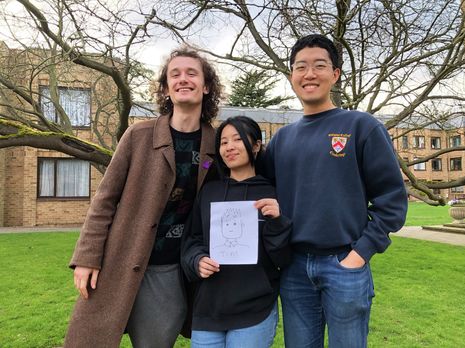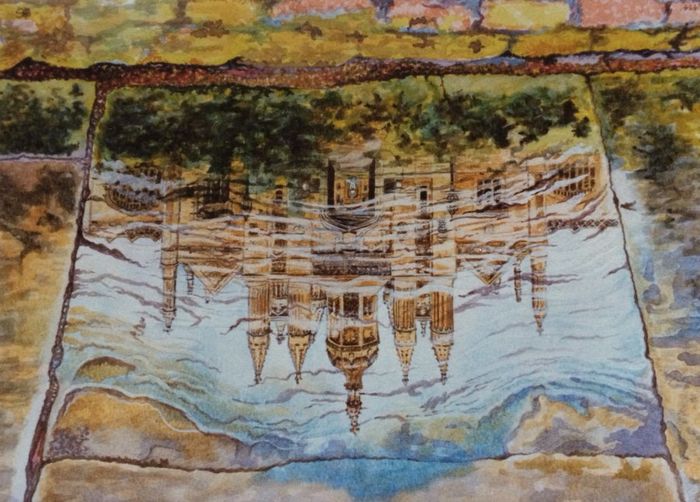Cambridge is in the Heart (Part II)
In this second instalment, Jonathan Chan bids a bittersweet farewell to the crucible that is Cambridge.
Cambridge is the most unequal city in the whole of the United Kingdom. People find that surprising, disregarding the fact that the homeless have become as characteristic of its urban topography as college architecture. A woman gave birth to twins on the tarmac in front of Trinity. Standing orders to Jimmy’s and stints with the Cyrenians have helped to assuage feelings of material guilt.
Being an international complicates things. It is known that our tuition fees are higher. It is easy to see that we aren’t from Britain. 4 days before I left, I couldn’t find it in myself to say no when someone on the streets asked me for money. I gave him a tenner and left him on his way.
As international students we lived in stasis. Going home was not as simple as a drive away.
15 minutes away on the city’s fringes lies Barnwell, the most deprived area in the county. I have known friends who have gone over every week to spend time with the suburb’s youths. For them, the city center feels like a distant entity. At different points I have been with friends to weed gardens and paint rooms, short-term measures that can never take the place of systemic changes.
***
You can ask the academic precariat to learn more about the slowness of change in Cambridge.
***
I remember the Friday when everything changed. The week before, messages of friends had come in urging me to consider returning to Singapore. Until then, I had no intention of leaving so abruptly, reckoning there were still places I wanted to visit and things I wanted to cherish. Toope and Virgo began to pop up in my inbox. Toope’s first message had left me angry at the absence of any comment on racist harassment of East Asians in Cambridge. Their subsequent emails left me unnerved at the lack of substantive recommendations on what would coming next. Frantic pieces of information appeared scattered across my WhatsApp chats. My DoS told me it would be better to go home, as did my parents and relatives.
As international students we lived in stasis. Going home was not as simple as a drive away.
***
I was acting in a play about death the week before I flew. We feared we would be sloughed off for an insensitive treatment of mortality. I played the uncle of the deceased. I thought the show would be cancelled on the second day of our three-day run. It would’ve been a perverse and apt way to bring our gloomy production to a close, one where six people had dropped out of acting roles. Circumstances coincided to make it impossible for the entire cast to run through the play until our opening night.
One by one, I saw friends relent and book their tickets home. Nobody wanted to say goodbye this way.
Our second performance came and went. We began to hear about colleges stopping gatherings of over 50 people. The ADC opted not to shut, so we brought our run to a close, triumphant and bittersweet. Everyone probably knew it would be the last substantial thing any of us did in Cambridge for a while. We have film photos to remember it by.
***
I said goodbye to places before I could say goodbye to people. Most of my British friends had packed up and left by the weekend that Lent was over. I did my solemn rounds, dropping library books off at a vacant Sidgwick Site, having one last look at the modest, orange English Faculty. I cycled out to Grantchester, past the wide open fields and shrubs, soaking in the expanses that seemed to meet the horizon. I went for my last church service and bumped elbows with my student pastor. My room began to fold itself into boxes.
Wolfson began to shut down before our eyes. The emails that came began to morph, first from recommending that we leave college to demanding we do so entirely. The administration made it increasingly difficult to stay. All public spaces in college would close. The hall would serve one hot meal a day. Entire staircases would be quarantined if one person fell ill. One by one, I saw friends relent and book their tickets home. Nobody wanted to say goodbye this way.
In an email from college, our President wrote:
‘What has really broken my heart this week has been to say goodbye to students for whom this is the end. Third year students who started on the same day that I did, but who will be denied this final glorious summer term, and one-year masters’ students who contribute so much to the College, who I was beginning to know, but who have had their times cut so short. It feels almost unbearable. I promise you a special welcome back when you return to graduate.’
When will that ‘when’ be? Next Michaelmas? Next summer? Will wearing that furred hood feel like an afterthought? A footnote?
Cambridge has always been a crucible.
One can only remain optimistic.
***
Cambridge could never have been about decadent formals or Latin prayers or boat races or arcane exams. To think so would be to disregard the possibility of Cambridge as a project and in process, a place capable of changing for the better.
Cambridge has always been a crucible– for people from across the world to congregate, for the free interchange of ideas, for the discovery of religious depth, for reckoning with colonial histories and present inequalities, for the yoking of new friendships, for the development of an outward-facing consciousness, for sentimentality. Memory tightens by way of absence.
Any finalist will acknowledge that one of these things would have been incubated to some degree, even with this decisive rupturing of our university lives. Many of us turned back, committed what we saw to memory, and left for the last time.
So Cambridge lives, irresolute, in the yearnings of our hearts. Someday, when we meet it again, I hope we will be at peace.

***
disruption: variations on xu
quietly i take my leave as quietly as i came
boxes strewn, linen stripped, thoughts in disarray.
quietly i wave goodbye to rosy clouds, to western skies,
to cycles past the open fields, the locus of imperial eyes,
that pool under the shade of elm holds rainbows from the sky,
the pools that well in silence fight bitterness each night.
the sediment of daydreams lies shattered in the weeds,
yet those could never be my own- i bristled at the seams,
and yet i cannot sing aloud, the quiet plays farewell,
the lustre fades with every light and every panicked bell,
the city draws into itself, the insects taciturn,
i skim my books of poetry, the syllables i've learned.
quietly i take my leave as quietly as i came,
my restlessness brought under a conciliatory frame.
gently now i flick my sleeves, no wisps of cloud at hand,
with leery eyes, a covered mouth, and hope to meet again.
 News / Clare Hall spent over £500k opposing busway 24 December 2025
News / Clare Hall spent over £500k opposing busway 24 December 2025 Comment / The ‘class’ of Cambridge24 December 2025
Comment / The ‘class’ of Cambridge24 December 2025 News / Caius mourns its tree-mendous loss23 December 2025
News / Caius mourns its tree-mendous loss23 December 2025 News / Girton JCR publishes open letter expressing solidarity with Palestine25 December 2025
News / Girton JCR publishes open letter expressing solidarity with Palestine25 December 2025 Comment / Yes, I’m brown – but I have more important things to say22 December 2025
Comment / Yes, I’m brown – but I have more important things to say22 December 2025










